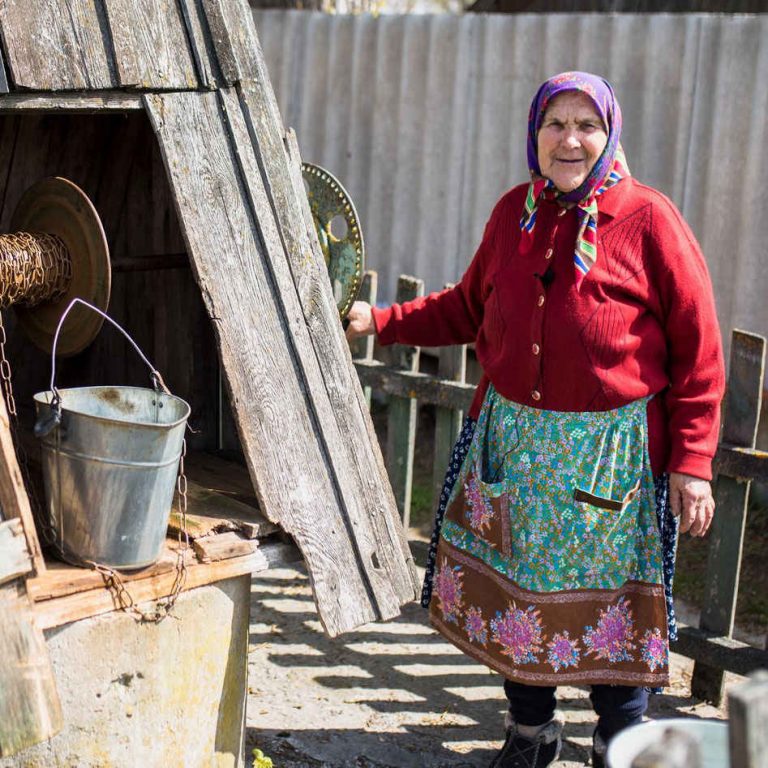On April 26, 1986, an explosion occurred, followed by another one. An accident at the Chornobyl Nuclear Power Plant was a technogenic, ecological and humanitarian catastrophe which has changed the image of the nuclear power worldwide. The scale of the accident and the evacuation of all the residents became known only the next day after the catastrophe. At the same time, people were forcibly evicted from the territory which is known today as the “exclusion zone”.
An interrupted business, unfinished homework, undercooked dinner — this is how the events of the evening when the evacuation started can be imagined today. The residents of the cities Prypiat, Chornobyl, towns, and neighbouring villages were leaving their places for a short time, for three days maximum, as they were told. None of them could imagine the scale of the disaster and did not suspect that they would have to leave their homes forever.
When the level of contamination was publicly announced, the life of many locals changed forever. No one planned to return, because the radiation was dangerous — everyone was telling that. For most of the evacuated, the fear of the invisible has won over the desire to come back home; almost everyone stayed in a new place. Everyone but self-settlers (“samosely” in Ukrainian).
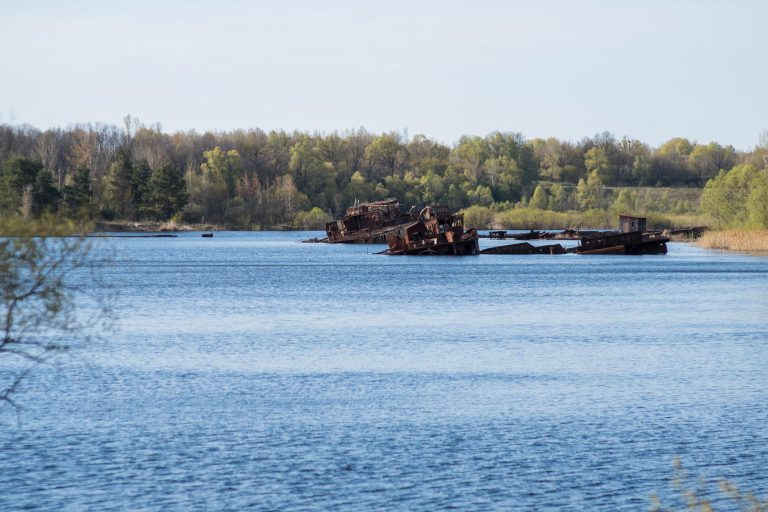
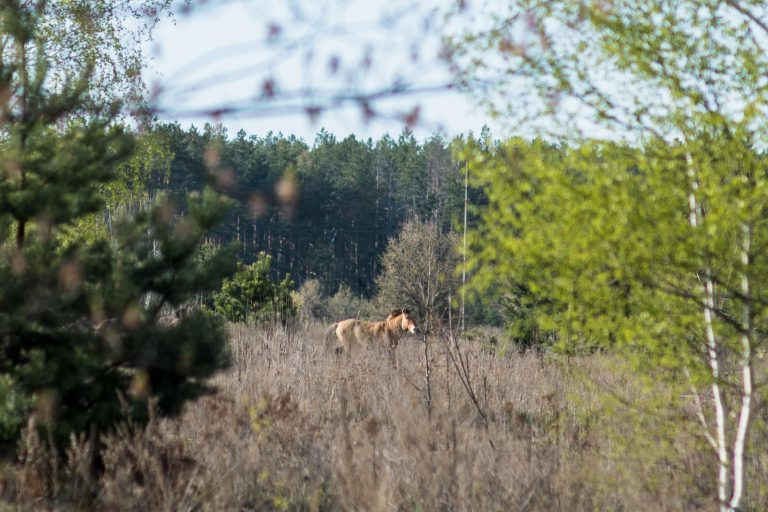
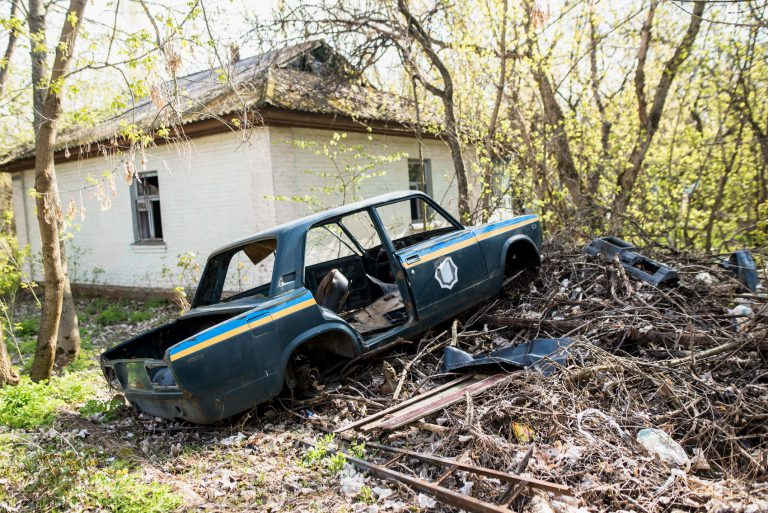
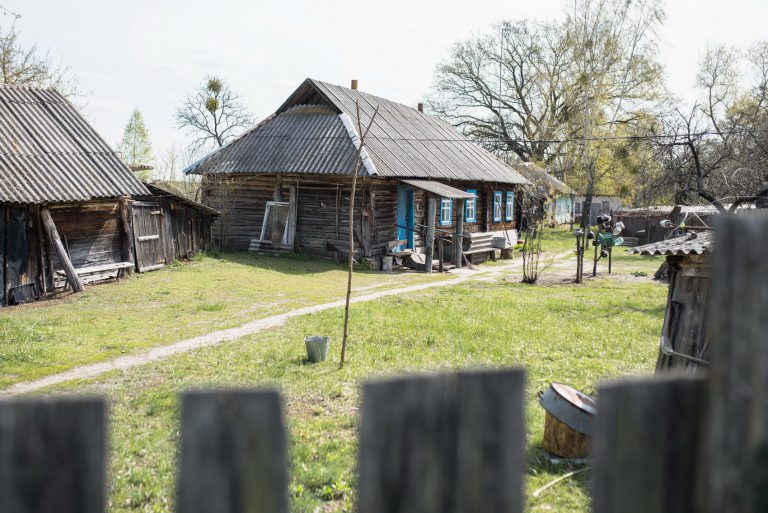
slideshow
The first returners to the exclusion zone were a few families from Cheremoshna and Nivetske villages. They came back on June 21, 1986. According to the information from the State Agency of Ukraine on Exclusion Zone Management, today there are around 130 residents and all of them are elderly people. The majority, driven by the homesickness, returned during the year after the accident. Even the militaries and barbwire could not stop them. Some of them did not leave the territory at all: they hid from the militaries in the barns or cellars and ignored the evacuation notice. Also, those who worked on the Chornobyl Nuclear Power Plant and its subsidiaries remained in the Zone “by default”. They got the temporary passes that they needed to renew annually.
Lina Kostenko (the famous Ukrainian poet and writer) — one of the participants of the historical and ethnographical expeditions to the exclusion zone — suggests calling the people who reside on this territory the “povertantsi” (“returners” in Ukrainian) instead of “samosely” (self-settlers), because they returned home. “I would like to ask — don’t call them “samosely”. It is offensive, because it is their motherland. They grew up there and continue to live in their houses after the accident, though forgotten by the state and God.”
However, the residents of the exclusion zone also call themselves “samosely”. They are doing it jokingly though, because they are actually at their homes.
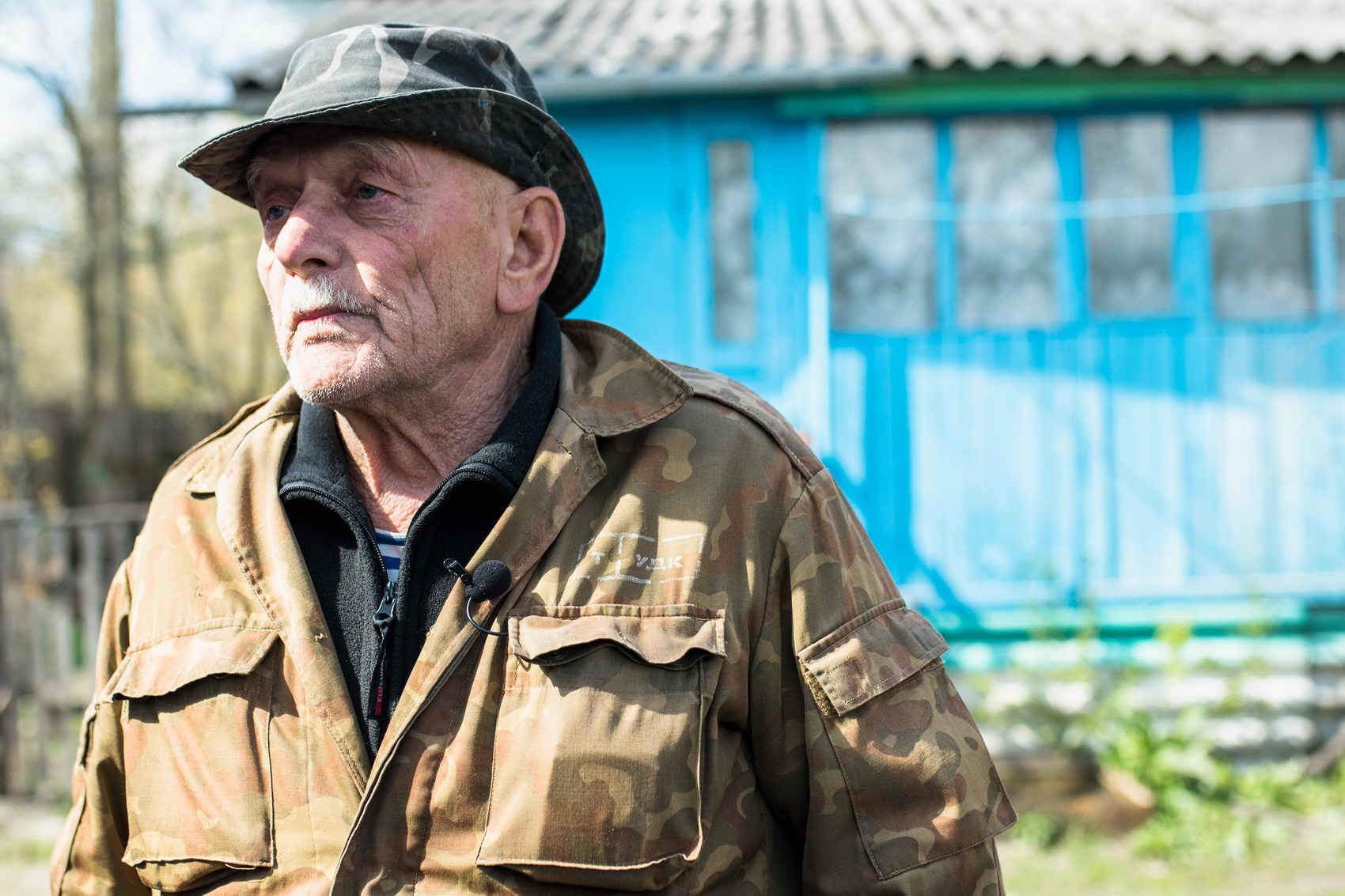
Yevhen
The resident of Chornobyl did not like this name before, but as time has passed, it seems, he has got used to it:
— So we are samosely. They also call me that. Those who had been living here before the accident, they stayed and lived in their own houses. When the accident occurred, I wasn’t even 49 years old. But soon I will turn 80 if I will manage to live a little longer. It has been 30 years after all — no joke. It is a big part of life, for someone it is a whole life.
Although Yevhen was born in Kyiv, he moved to Chornobyl as a 7-year-old child when there was a famine in Kyiv. The family was struggling to survive with only the mother’s salary, so they decided to move to her sister’s place right after the Victory Day celebration:
— We moved, because it was our Grandfather’s house, built in 1915, in the last century. So it is 102 years old now. It is beaten: so many wars, so many revolutions it has survived, both Civil and the Second World War. It has been shot with shells. There even are holes from the shell fragments in my door.
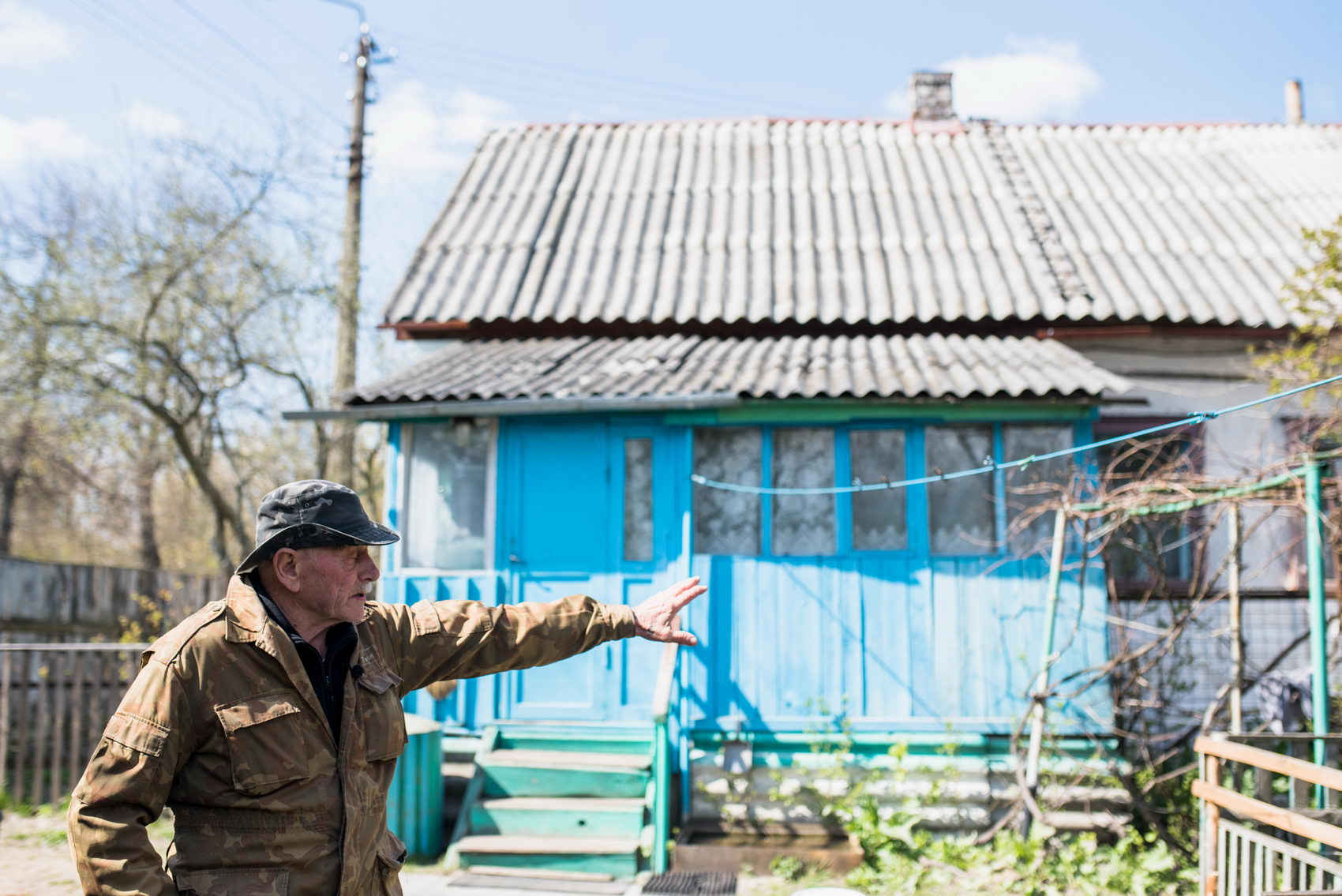
Back then, in order to move to Chornobyl, little Yevhen and his family walked there from Kyiv three times: by foot, by a ship, by stopping the vehicles passing by. They even took the goat with them:
— Oh, she was beating me. There was a small fence here. She didn’t have horns, but was very pugnacious. So she hit me… And I was this skinny. She kicked me in the butt so I flew over the fence. She was a beauty. And her milk — I can’t deny it… You would drink a glass of milk and get well immediately.
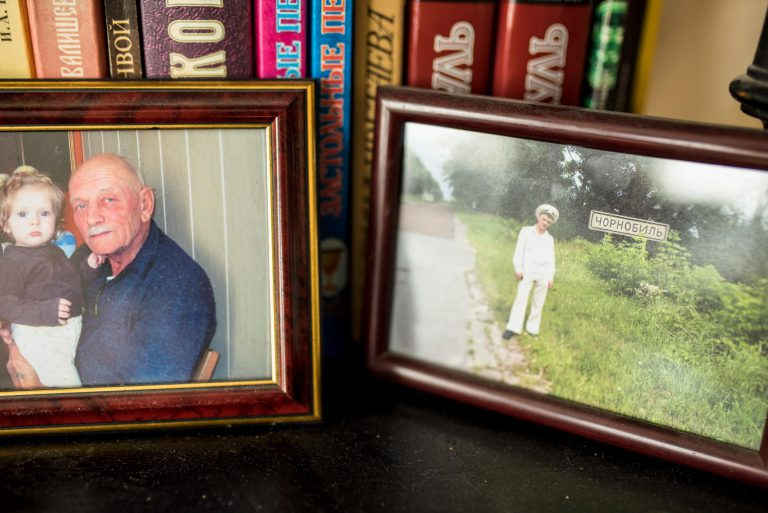
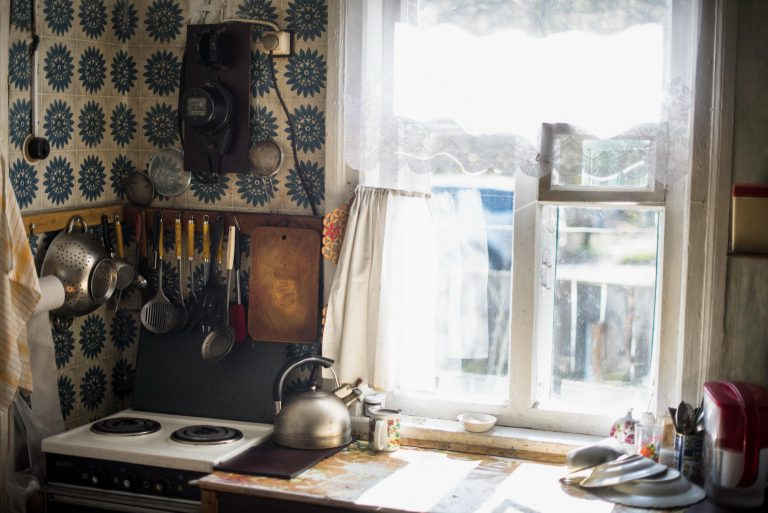
slideshow
Before the accident, there had been around 14 thousand residents in Chornobyl, and 185 thousand in Chornobyl raion (an administrative unit, a part of an oblast). After the power plant had been built, the multi-storey buildings were constructed in the city and were quickly filled with the workers and their families. The job, and later, the road appeared:
— But the power plant shouldn’t have been built here, that’s it. The power plants were built for no good. It can’t be done here, no. Don’t cover Polissia with this waste. It spreads all over Ukraine. And the most important — no one asks scientists — no one asks them whether we need it, if there are any recommendations. They just did it out of blue, as the Moscow once dictated. To build a power plant? Let’s build it here. So they did.
Yevhen used to go fishing to Nahirtsi village. The first block of the Chornobyl Nuclear Power Plant had been recently constructed there, and as Yevhen tells, this was “not blessed, but on the contrary — a bad place”. There was an old man living in Nahirtsi back then, who told, “You will go away from here the same way you came”. Yevhen only shrugs when he recalls this episode:
— So it happened as he told. It seems he knew it, realized something.
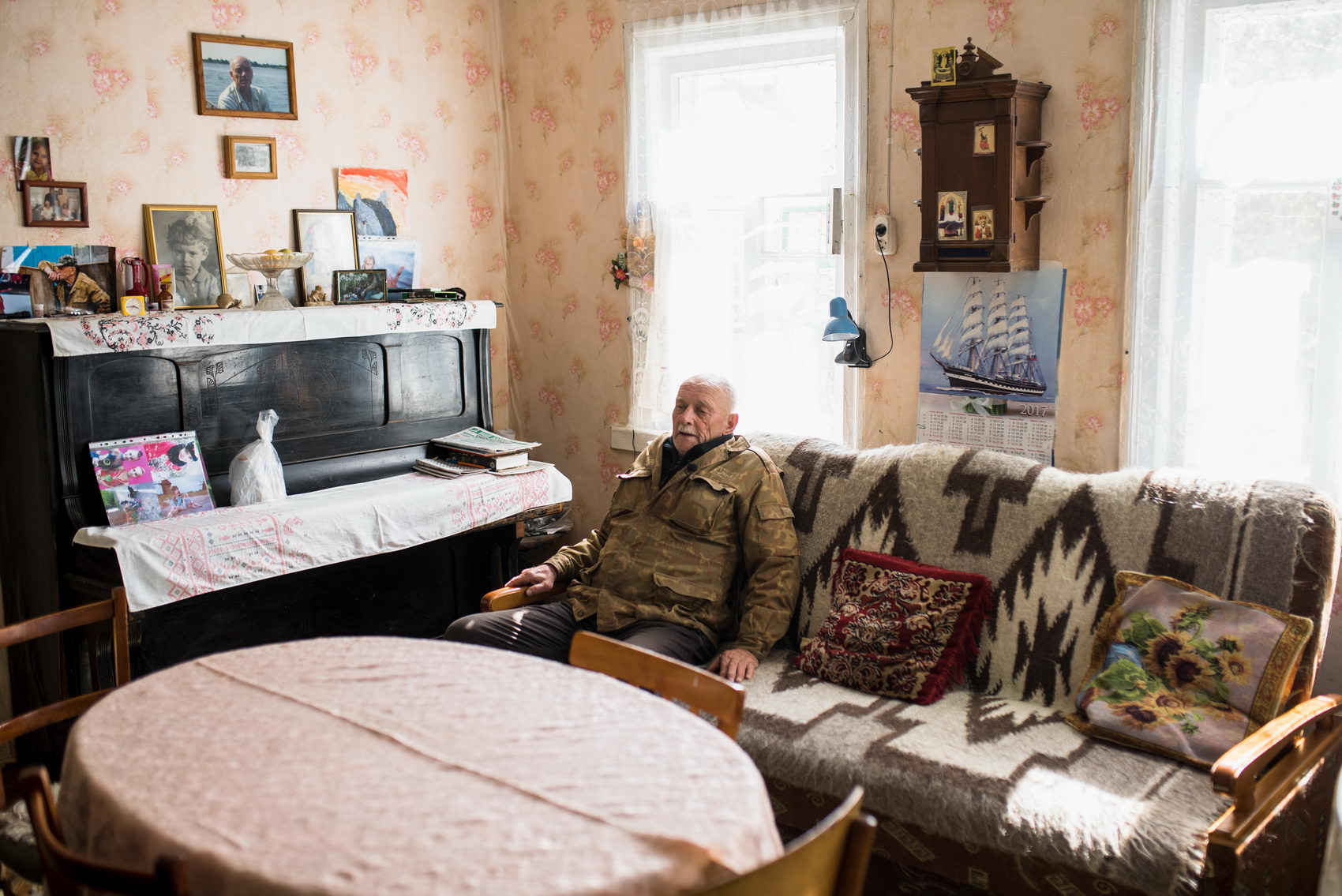
The day of the accident, Yevhen, who was a teacher of crafts in a school back then, was going with pupils to Kopachi village to harvest potatoes. There were no flames visible, just smoke, but no one was really concerned about this fire, because something was always burning on the Chornobyl Nuclear Power Plant — paints, tires.
The same evening Yevhen took his 9-year-old son Denys to the river to teach him to row. When they came back home, they found the note from his wife where she asked to send the son with someone to Kyiv to their niece, because there was chaos around and people were evacuated somewhere:
— I understood that I couldn’t just give my son away; to send him with someone and then to look for him my whole life. I kept fresh memories from the war, how people were still looking for their kids. So I put him in a motorcycle sidecar, wrapped him up. I took him not to Kyiv but to Bucha, to my friend with whom we had served in the military. I asked, “Tolik, take Denys to Natasha (relatives in Kyiv — ed.) tomorrow because I need to go to school for work in the morning”. It was on Sunday.
Video 360
On Monday morning Yevnen was at school when he was told that the reactor had burned. There were only half of the kids left in school. The residents of Chornobyl had already left the previous day. The men were working at the Chornobyl Nuclear Power Plant for three days — they were extinguishing the flame with sand.
— I arrived, was digging in the motorcycle, preparing the sidecar and was thinking where I would live, how I would work, what I would do. I couldn’t go anywhere, I had nowhere to go.
Yevhen went to Borodianka, where the Centre of Evacuation was, but he came back home soon. He understood that this was going to be not for a day or two, but most likely, forever.
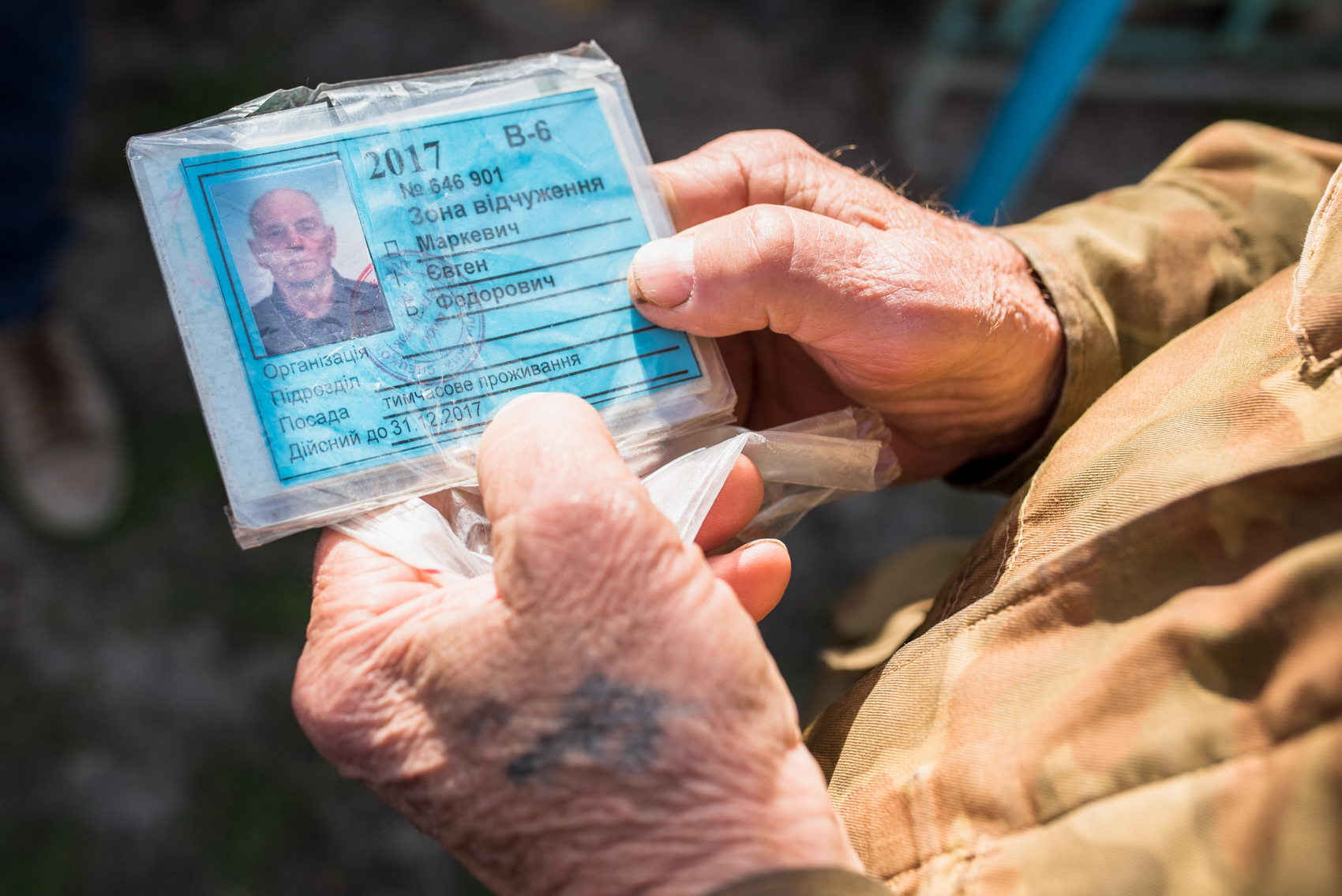
Returning
When Yevhen returned to Chornobyl, there were the patrols everywhere. Few times he got past them by cunning in order to be able to get home and check the house. He still keeps the special trousers he was wearing in those days: there is a radioactive spot on them that he cannot wash out. That is why these clothes are in a garage, rolled like a tube and wrapped in paper.
The same year Yevhen got to know the head of the State Inspection of Utilization of Electricity Stations and Networks — Mykola Istomin, who employed him in Chornobyl as a mechanic to repair controlling and measuring devices:
― They wanted to employ me as a master, but I rejected it because I saw those devices for the first time. I wanted to be hired as a regular mechanic instead or do any job — I would even sweep the floor just to stay in Chornobyl. I was dying to come back to Chornobyl, wanted it so much.
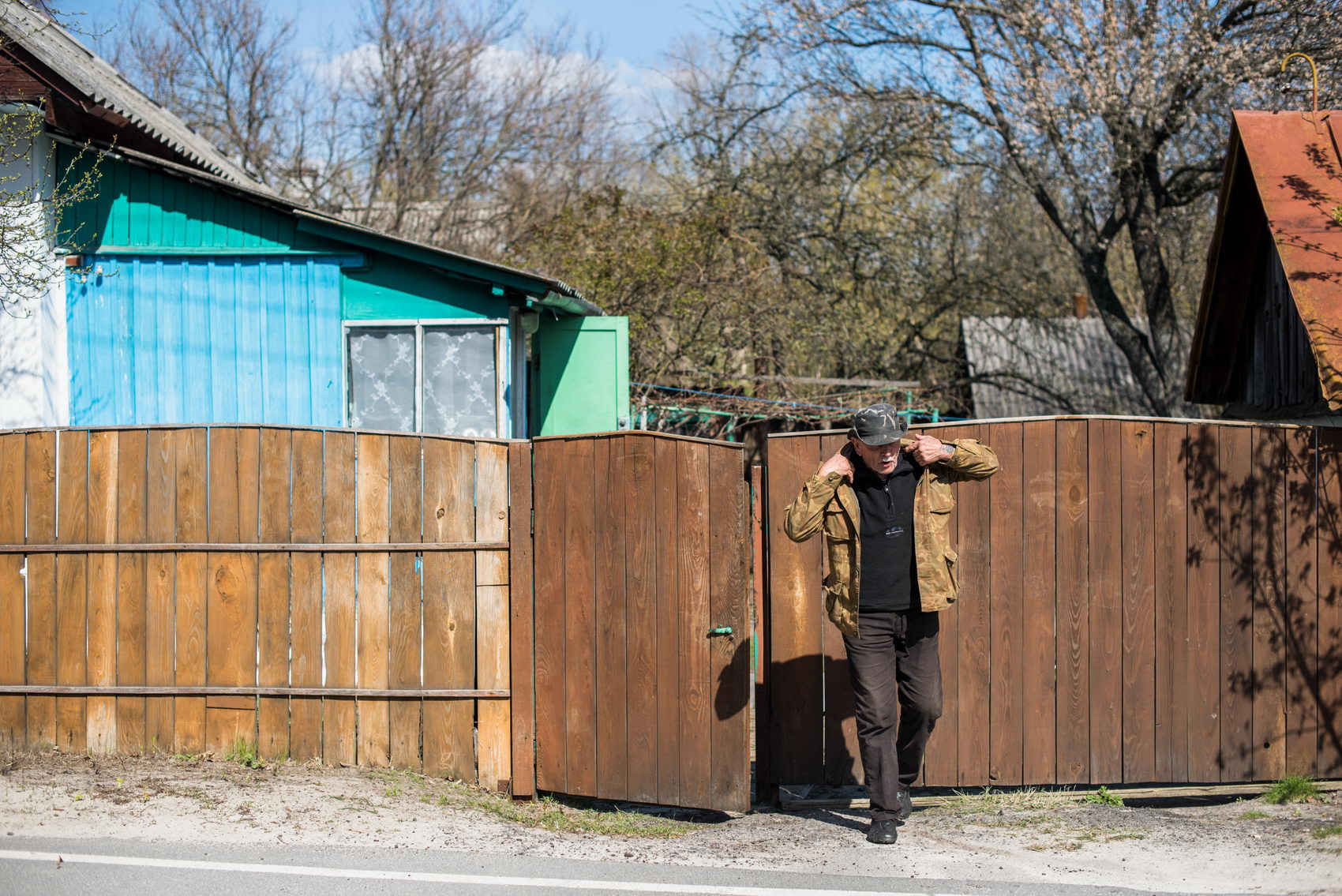
He worked there for 20 years. He was offered to work in the department of the nuclear safety in the filiation of Kurchatov Institute, later also in Moscow, but he insisted on staying in the department of dosimetry in Chornobyl. Some 15 years later, he was still carrying the radiation measuring device and searching for the most polluted areas.
Nowadays radiation does not seem so dangerous to him as it seemed 30 years ago. Two years ago, on the thirtieth anniversary of the Chornobyl accident, journalists came to the self-settlers frequently. Yevhen, bringing his own example, was convincing them that living in the exclusion zone was possible since he himself lived there for so long. They ate from the garden: tomatoes, potatoes, onions. They kept chickens that laid eggs:
― Did we survive? We did! Did anyone get sick? No one! Did anyone die of radiation? No one. You have to make some conclusions.
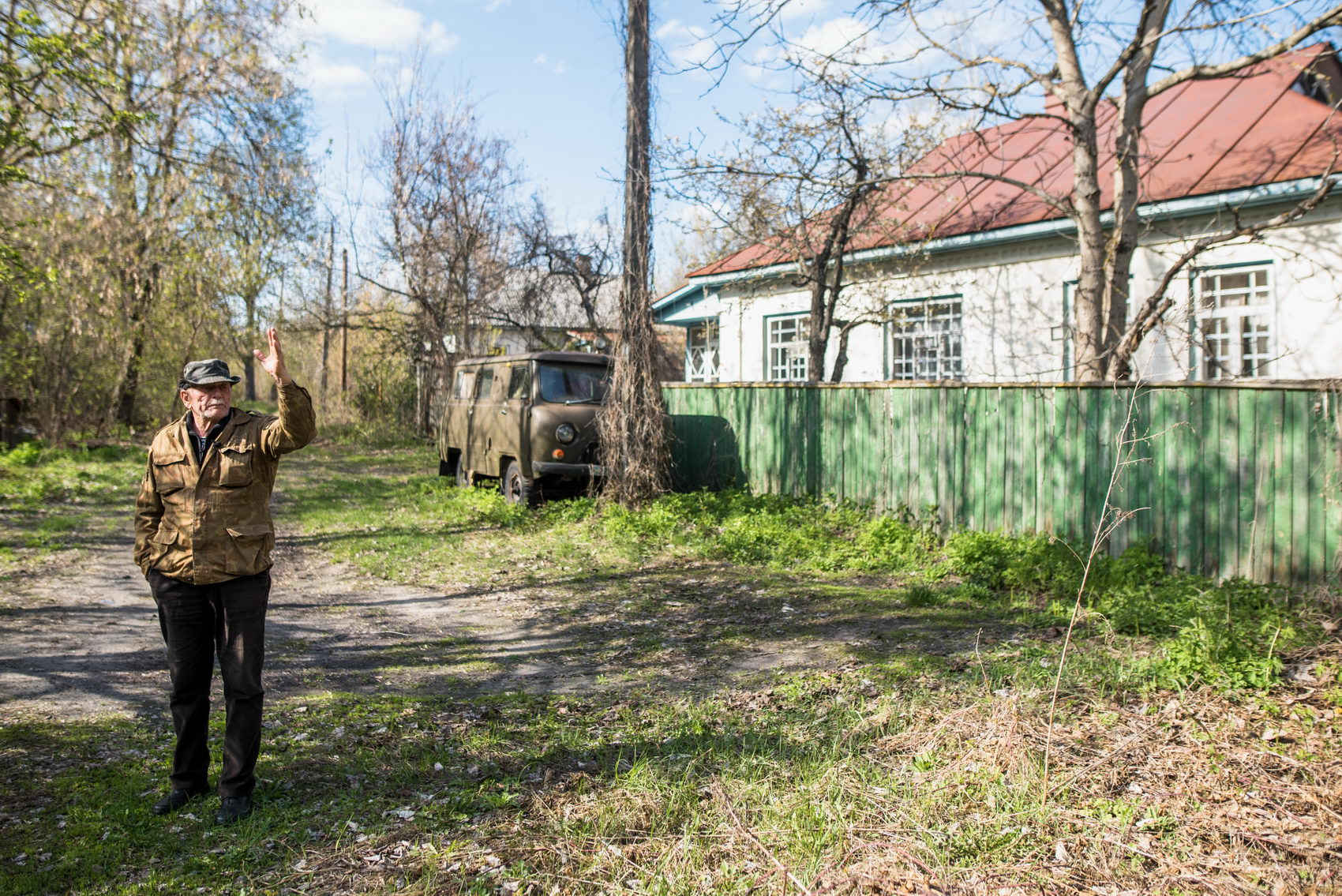
Yevhen believes there is no secret to the long life. Self-settlers live without stress, breathe in fresh air, eat their food from the garden, get a pension. The only problem that might occur, he admits, is to forget to heat the house:
— If I hadn’t returned immediately, I would have kicked the bucket. I want to live in Chornobyl, nowhere else. In general, I believe that I have a good time as an old person. No one troubles me, no one bothers nor requires anything.
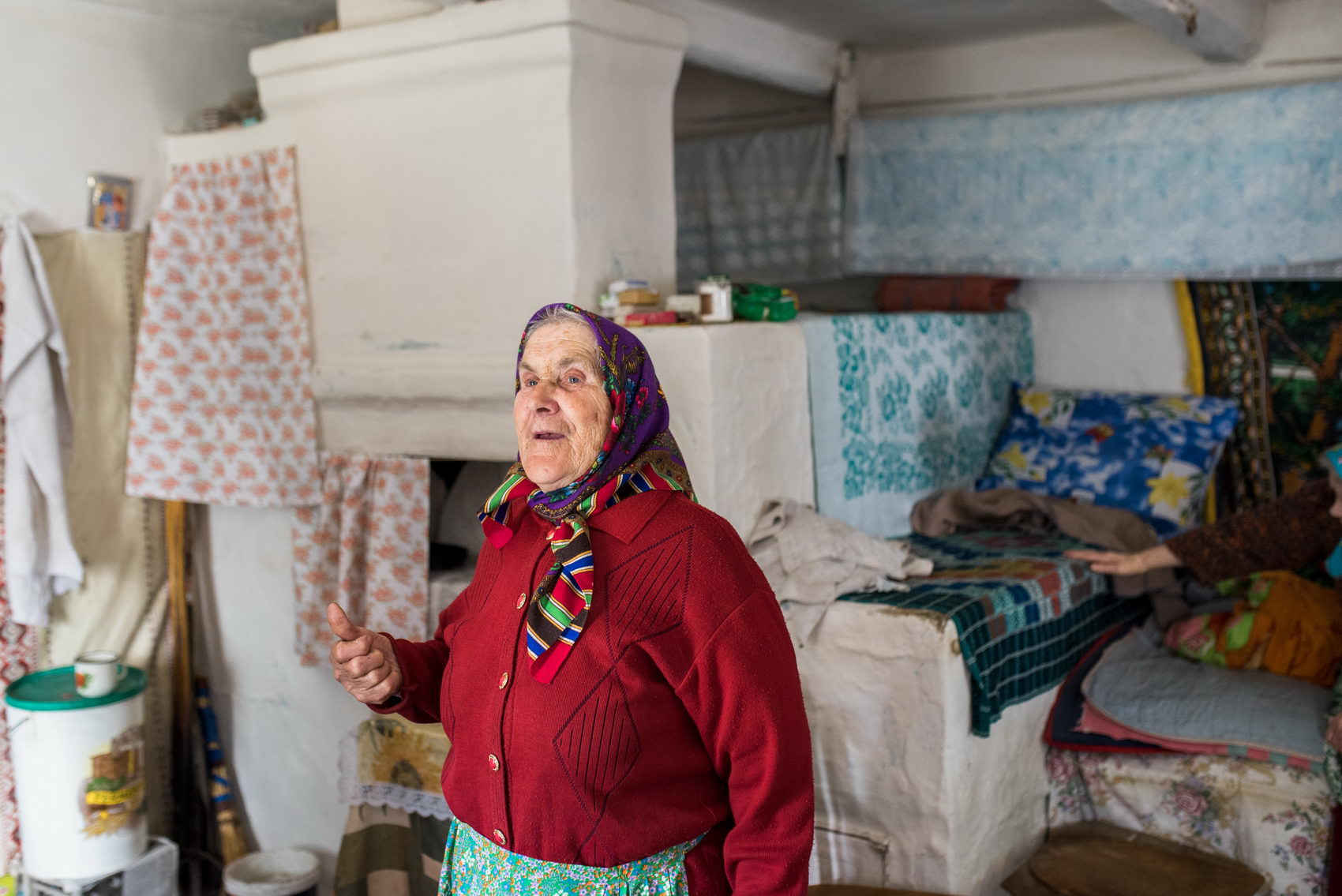
Hanna
Hanna Zavorotna is already 84 years old. There are 18 people now who live in her village Kupovate. Initially, there were more than 30 first returners; before the accident, there had been around one thousand residents. Hanna seldom leaves the settlement. There is no transport connection with the village.
After the accident Hanna stayed in the village for almost six days: no one told her about the explosion and the radiation. She was working in the kolhosp (Soviet collective farm) field when the head of the village came and told about the evacuation. Hanna recalls moving out rather calmly. She tells that there was a mess and it was difficult to leave everything at home:
— The chief agronomist ordered to get ready. He told, “Alekseievna (Hanna’s patronymic), the people with you are all handicapped: your husband is disabled, your mother-in-law is on crutches and your mother is with a walking stick. Get ready, he told.”
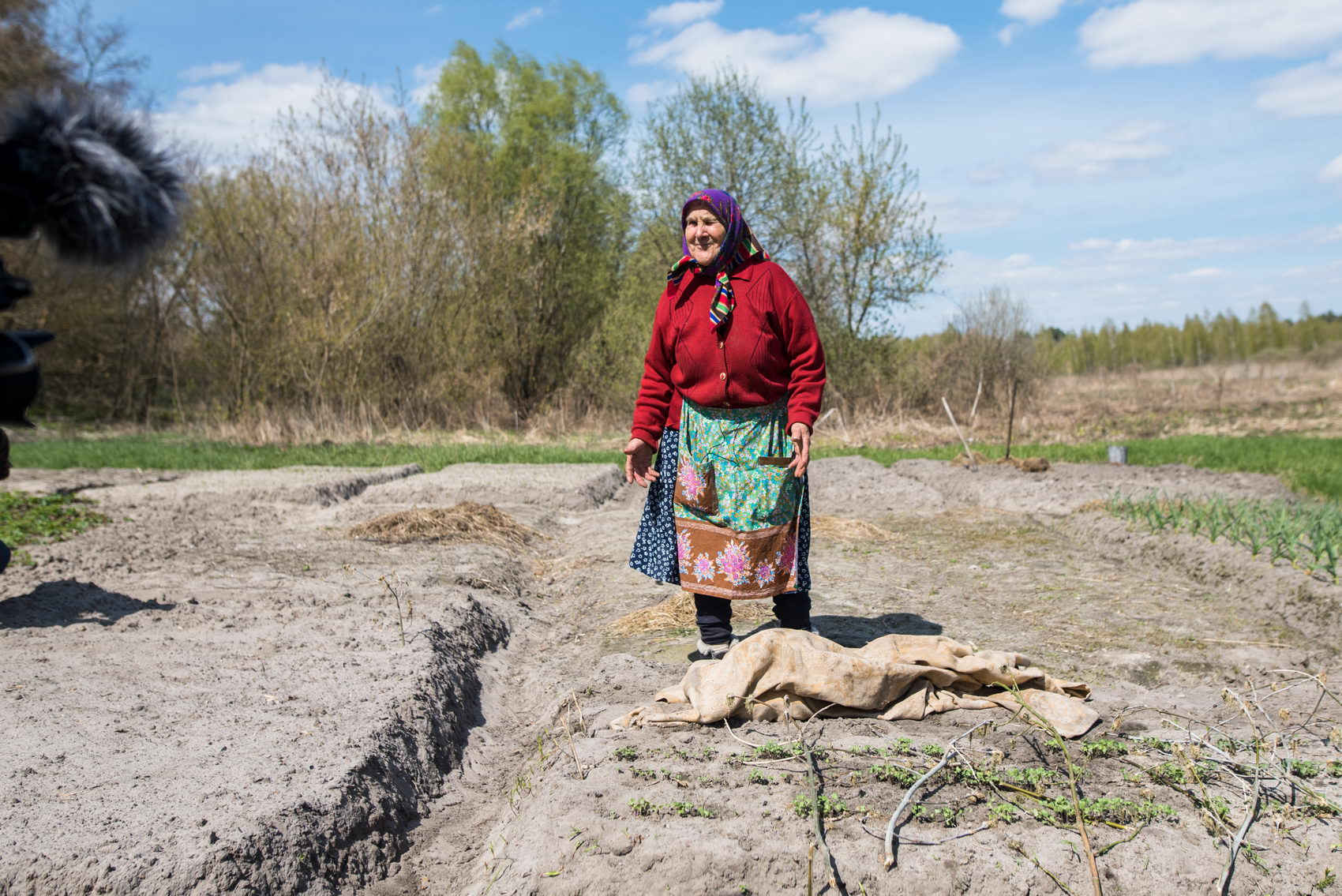
After the accident, her family was brought to the village of Kopyliv in Makariv raion where they spent the summer. They worked in the local kolhosp. Later they moved to Hruzke nearby, where they were given a house. Hanna is complaining that they got the necessities, but there was no stove in the house. They decided to come back after the winter:
— Then around 30 people came back. They went to Tomashivka. It is, I think, Fastiv raion. But they all have already died, my son, only three souls are left there, there in the graves they are. And those who stay in Hruzke, where I came from, all are on sticks (with walking sticks — author). And we, thanks God, are at home.
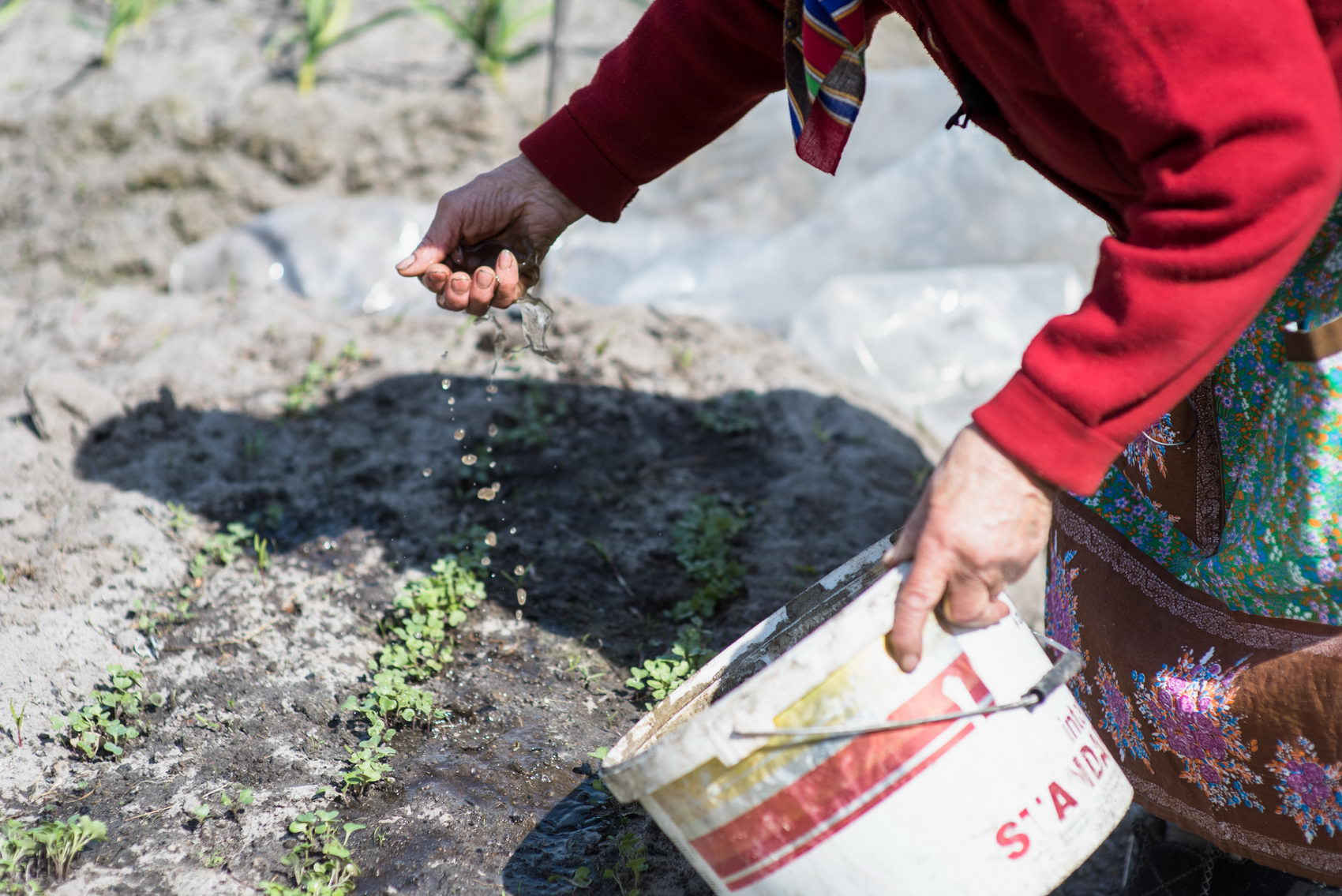
Returning
In the garden, there are potatoes, carrots, beetroot, cabbage, and garlic. She does not grow corn, because the wild pigs are stealing it. She does not have cattle, only six chickens. Ever since her husband, who was a tractor driver, died, she has been working in the garden by herself.
The grocery store of the Stukach family, who moved to the Zone from Ladyzhyn, near Vinnytsia, comes to Kupovate every two weeks.
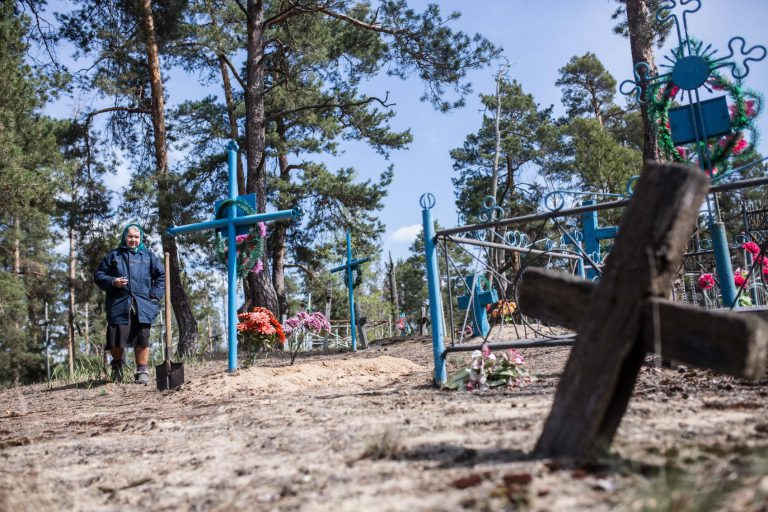
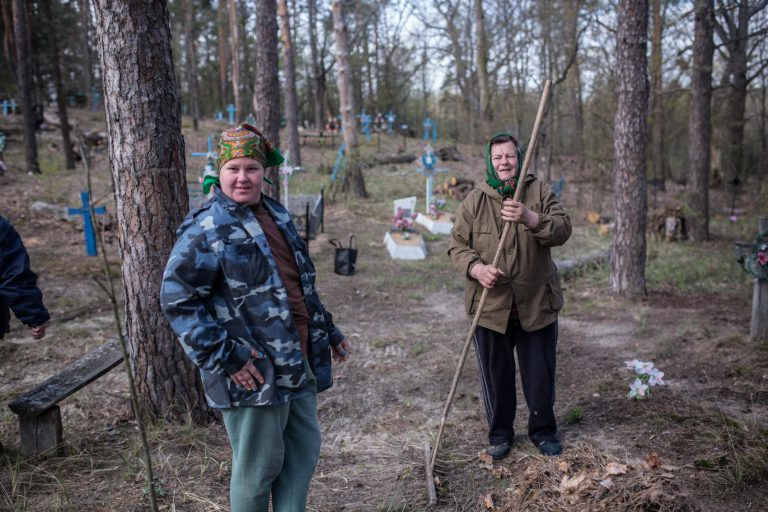
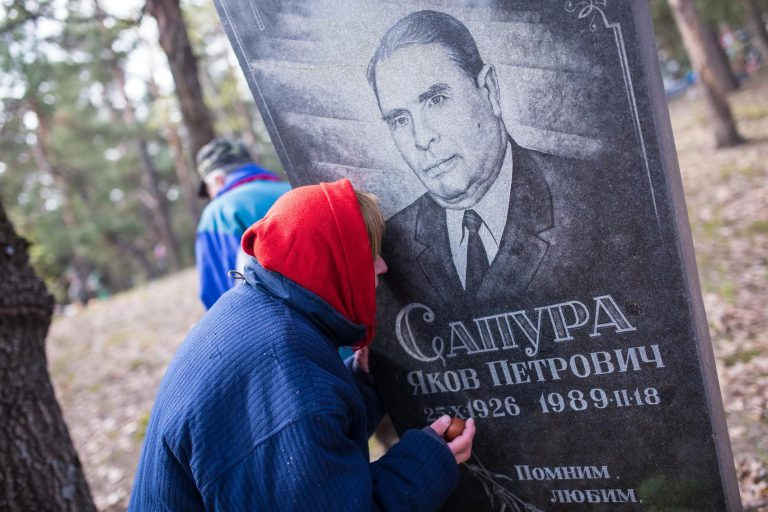
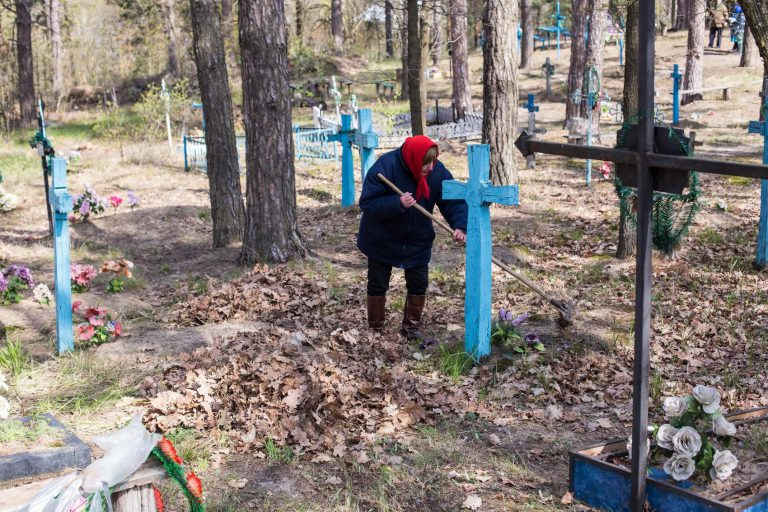
slideshow
The reasons to gather the whole village can be both religious and everyday dates: name days, birthdays, funerals. But one can meet all the residents on the village gatherings not so often:
— We are getting together, getting together. We are but few people — seven or five. Someone doesn’t want to come, the others are sick, and also limping — whom do we have here… Good if they would manage at least to take care of the graves.
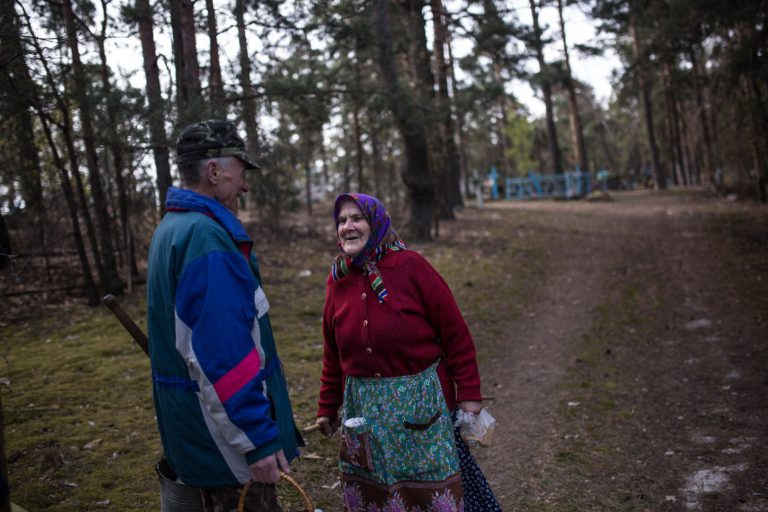
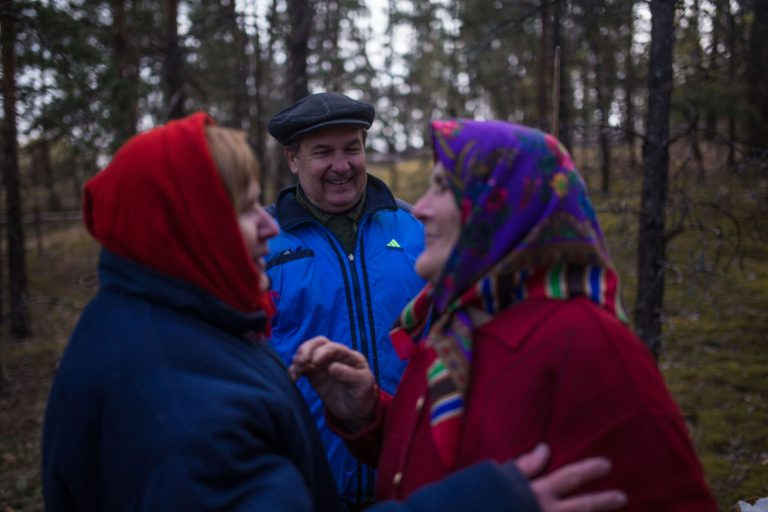
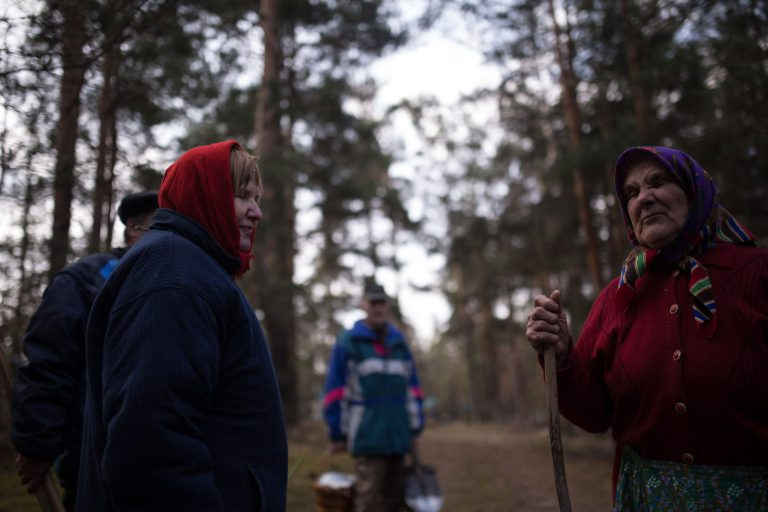
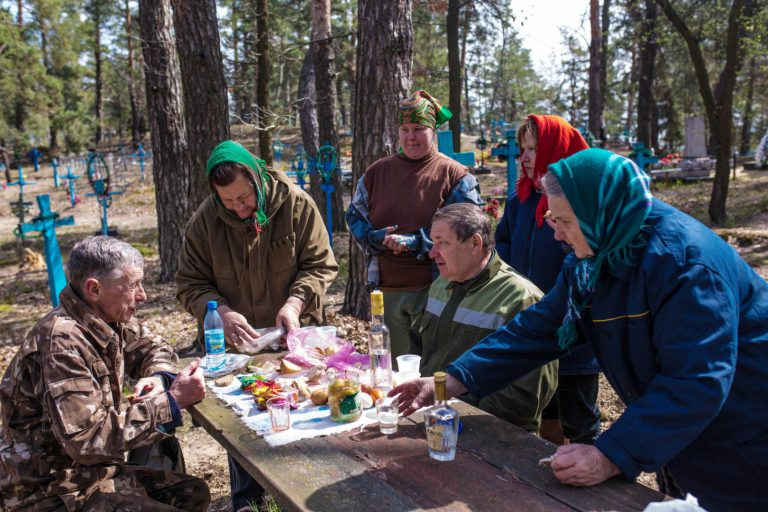
slideshow
Previously they were singing traditional songs in the village. Not so far ago, there was a custom to invite each other to sing on Easter or Christmas. Hanna is singing about the most relevant:
I was shepherding horses on the meadow and in the oakery,
Soldiers asked the widow to let them to sleep over.
Hey, widow-widow, give our horses some hay,
Dear soldiers, I haven’t scythed yet.
It’s been the eighteenth winter since I’ve been working hard alone.
Hanna does not care about radiation. The most important to her was to come back home:
— There was radiation in 1933 as my mom gave birth to me. She’d got two of us, and there was nothing to eat. So that was radiation. I do not see this radiation. And even if it exists, I don’t have teeth to try it.
She says her friends and acquaintances from all over Ukraine, and Kyiv in particular, visit her often. She is grateful for those visits and invites to come again because it is very inspiring.
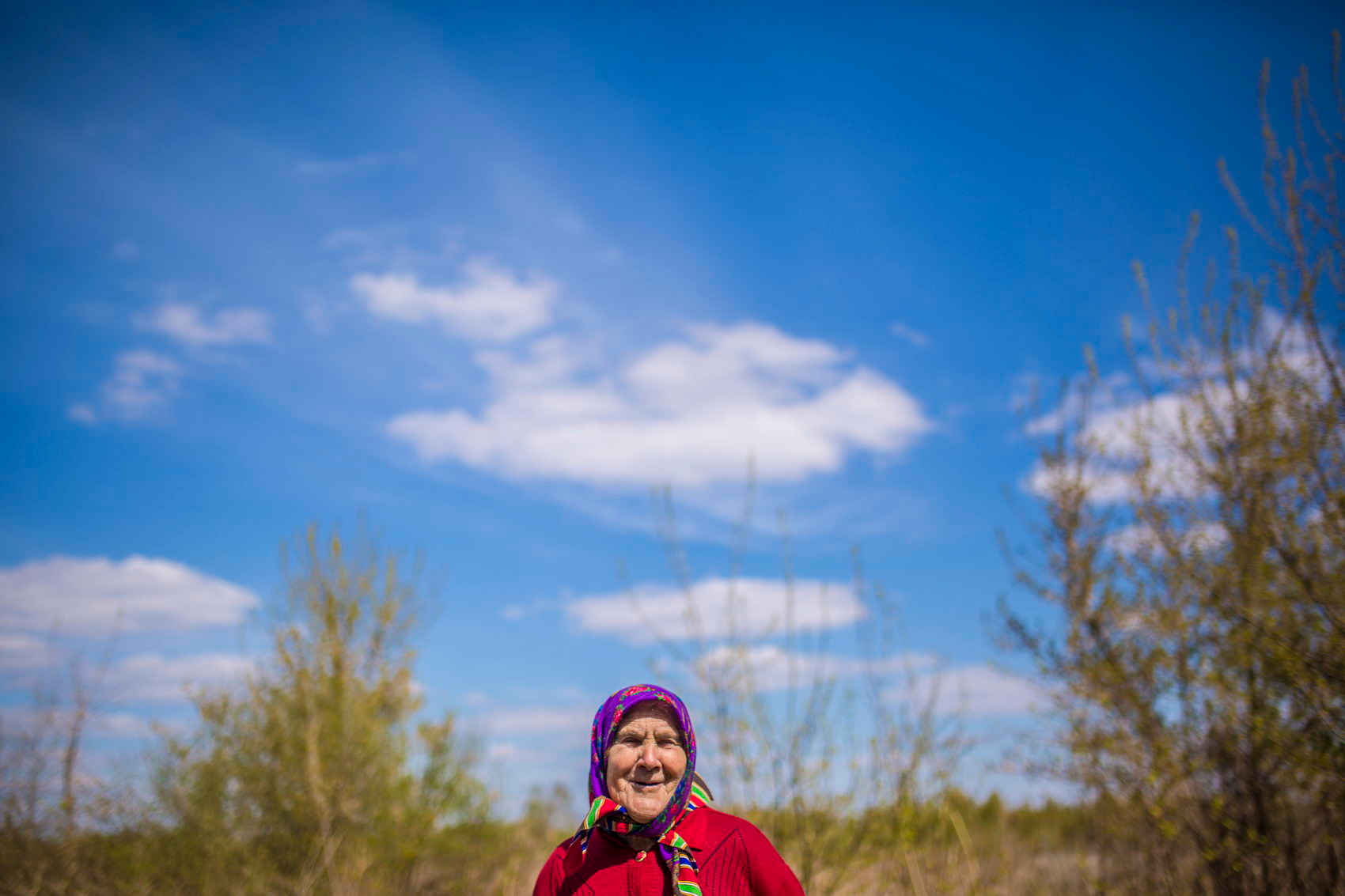
Ukraine gave the official status to the returners a few years after getting the independence by calling the indigenous people of the exclusion zone who returned to their homes after the accident the self-settlers. Back in the 1990s, the area got gas, electricity and food supply.
The catastrophe of 1986 was the first of its kind in the world. The self-settlers are a unique phenomenon, such as the fact that so many people have been living almost at the epicentre of the pollution for so many years. That is why there are so many movies shot and books written about the Zone residents, both Ukrainian and foreign. But the people themselves are happy to be back home. And at home, they say, even the walls are healing.

